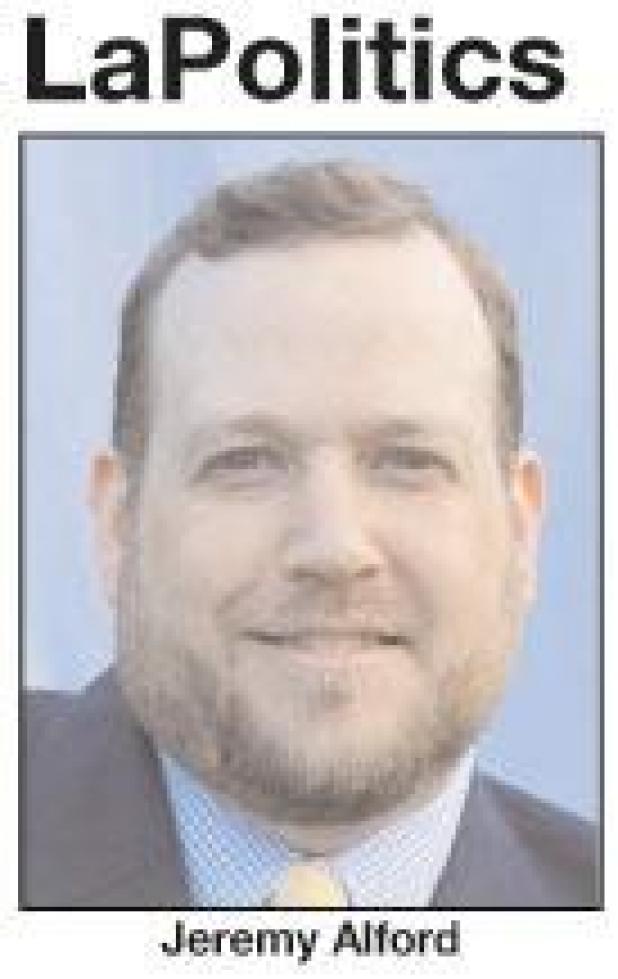
Louisiana Politics: BP oil spill claims process is finally nearing a conclusion
After five years, nearly 400,000 claims and more than $9 billion in payment offers, BP’s massive settlement program may be coming to a close within the next five months.
“We will have decided all of our determinations by the end of this year,” Pat Juneau, the court-appointed administrator, told LaPolitics last week.
While the work related to the private claims will likely continue past December, due to appeals and other legal maneuvers, the work of Juneau, a Lafayette attorney, will be concluded by the time New Year’s Day rolls around.
The claims process was established in the wake of the 2010 Deepwater Horizon explosion and oil spill that killed 11 people and littered Gulf of Mexico beaches with balls of tar.
The closing of the curtain couldn’t come sooner for executives at BP, which is experiencing an earnings slip as costs associated with the oil spill continue to weigh on balance sheets, according to reporting from the Associated Press.
The numbers tell that particular story:
— One measure of profit suggests BP’s second quarter standing dipped to $684 million, compared to $720 million during the same quarter of 2016
— BP had to escrow $347 million in the second quarter for the claims process and other expenditures connected to the spill
— That makes for $63.2 billion expended on the disaster thus far and $39.8 billion in net debt for the company, which was higher than expected
“While net debt rose primarily due to Gulf of Mexico payments, we expect this will improve over the second half as these payments decline and divestment proceeds come in towards the end of the year,” Chief Financial Officer Brian Gilvary told the AP.
Lawsuit challenges booze tax
A civil district court hearing has been scheduled for this week to explore the constitutionality of what is being called a gallonage tax on alcohol. And it’s taking place in a city known for its booze consumption — New Orleans.
The tax, according to critics, directly impacts alcoholic beverage dealers and indirectly touches consumers, restaurants and retailers.
The lawsuit, which was originally brought by the Beer Industry League of Louisiana in December and later joined by the Louisiana Restaurant Association, actually seeks to invalidate two taxes in the city of New Orleans.
Plaintiffs expect to move for a ruling on the other tax, a processing fee, soon after the Aug. 8 hearing. Attorneys for the associations are describing both taxes as “unconstitutional overreaches.”
Judge Clare Jupiter has the case, which will first focus on the gallonage tax, which is imposed on alcohol based on the volume sold.
The plaintiffs call it a “property tax” that violates state law, while the city contends its home rule charter exempts it from all current state and constitutional limits on taxation. It raises interesting questions about whether the 1921 version of the constitution guides the way for the city on this issue, or if the Legislature is vested solely with taxation authority.
The so-called gallonage tax was adopted last year, went into effect in the spring and is currently being paid under protest.
The other tax, which has been on the books for more than seven years, is actually a $1,000 processing fee for restaurants and other establishments that are required to obtain a liquor license.
The fee is charged in addition to the cost of a license, which ranges between $135 and $500.
Attorneys for the associations argue that state law specifically limits the amounts a municipality can charge for liquor license fees, and that the city is attempting to skirt those limitations by calling the $1,000 charge a “processing fee.”
Political History: A
booze-free Louisiana
Last week marked the 99th anniversary of Louisiana ratifying the 18th Amendment, which established the prohibition of alcoholic beverages in the United States.
Ruffin Golson Pleasant, a Shreveport native, was the governor at the time, and he waited an additional week before making the ratification effective. According to Samuel Hyde’s “Prohibition,” which was produced for the Louisiana Endowment for the Humanities in 2010, “Louisianans
quickly perfected numerous methods to circumvent it. Indeed, some have argued that drinking liquor became even more popular in Louisiana after it was declared illegal.”
In New Orleans local elected officials fought to have alcohol declared a food supplement and rumrunning became a major industry in the state.
“Smugglers brought so many shiploads of illegal liquor to Louisiana that the price actually began to decline,” Hyde wrote.
Even Louisiana’s top elected official during the last stretch of prohibition was willing to look the other way.
“When asked by the mayor of Atlanta what his administration was doing to enforce prohibition, Louisiana governor Huey P. Long famously responded ‘not a damn thing,” Hyde write. “Scores of Louisiana residents, whether they consumed alcohol or not, simply resented the intrusion of government into what they perceived as private affairs. Thus, they refused to support enforcement of the law.”
They said it
“How do I fly an airplane looking backwards?”
— Micheal Glisson, South Louisiana Community College vice chancellor, explaining the value of prospective data, in The Lafayette Advertiser
“I just want the community to quiet down. I don’t need for this to be stirred up.”
— Clarence Mayor Tommy Evans, upon hearing the mounting complaints about his
administration, in The Shreveport Times
For more Louisiana political news, visit www.LaPolitics.com or follow Jeremy Alford on Twitter @LaPoliticsNow.
